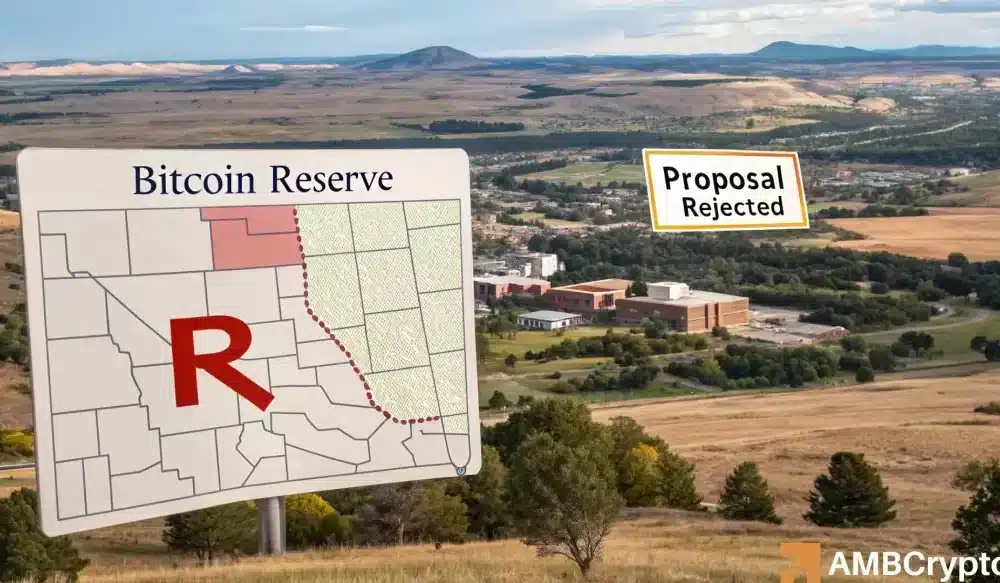South Dakota recently faced a setback in its potential path towards embracing Bitcoin [BTC] as lawmakers decided to suspend progress on a bill that could have permitted the state to invest in the digital currency.
South Dakota’s Retraction
On the 24th of February, during a meeting, the House Commerce and Energy Committee of South Dakota opted to postpone HB 1202 until the 41st day of the legislative session, effectively ending the proposal since the session only lasts for 40 days.
The bill was put forth by State Representative Logan Manhart on January 30th with the aim of modifying existing regulations to enable South Dakota to allocate up to 10% of its public funds to Bitcoin.
Despite this setback, Manhart has revealed intentions to reintroduce the bill in 2026, maintaining optimism for the state’s potential future involvement in the advancing digital asset landscape.
South Dakota’s actions echo recent events in Montana, where a similar bill was decisively rejected by the House with a 41-59 outcome.
Potential Concerns Among Legislators
The decision to defer HB 1202 in South Dakota largely arose from concerns regarding Bitcoin’s inherent price volatility and the lack of clear federal regulations surrounding it.
Critics of the bill raised arguments that allocating public funds to such a highly unpredictable asset could expose the state to significant financial risks.
Matt Clark, the State Investment Officer of South Dakota, echoed these concerns by questioning Bitcoin’s absence of intrinsic value and underscoring the potential hazards of subjecting state investments to extreme market fluctuations.
Clark expressed,
“Bitcoin lacks any underlying physical use. It does not produce income, similar to commodities or other asset types.”
Status of Bitcoin Reserve Initiatives in Other States
Despite the ultimate failure of HB 1202, discussions around state-managed Bitcoin reserves are far from concluded.
States like Florida, Missouri, and Arizona are currently exploring similar legislative avenues, indicating that the discourse on incorporating Bitcoin into public financial frameworks is poised to escalate in the forthcoming years.
Therefore, the evolution of the landscape in states venturing into Bitcoin reserves, coupled with the growing momentum behind Donald Trump’s proposition to establish a strategic Bitcoin reserve in the United States, remains to be observed.

